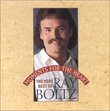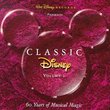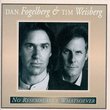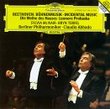| All Artists: Mitsuko Uchida, Franz Schubert Title: Schubert: Piano Sonatas in A minor, D537 & A major, D664 / German Dances, D820 & D790 Members Wishing: 0 Total Copies: 0 Label: Philips Release Date: 11/12/2002 Genres: Dance & Electronic, Classical Styles: Chamber Music, Forms & Genres, Sonatas, Historical Periods, Classical (c.1770-1830), Romantic (c.1820-1910) Number of Discs: 1 SwapaCD Credits: 1 UPC: 028947026525 |
Search - Mitsuko Uchida, Franz Schubert :: Schubert: Piano Sonatas in A minor, D537 & A major, D664 / German Dances, D820 & D790
 | Mitsuko Uchida, Franz Schubert Schubert: Piano Sonatas in A minor, D537 & A major, D664 / German Dances, D820 & D790 Genres: Dance & Electronic, Classical
Written in 1817 and 1819, the two sonatas on this disc are a study in contrasts: the dramatic, agitated, impetuous A minor, whose many fortissimo passages hardly seem characteristic of Schubert, and the "little" A major (s... more » |
Larger Image |
CD DetailsSynopsis
Amazon.com Written in 1817 and 1819, the two sonatas on this disc are a study in contrasts: the dramatic, agitated, impetuous A minor, whose many fortissimo passages hardly seem characteristic of Schubert, and the "little" A major (so called to distinguish it from the "great" one of 1828) with its beguiling, sunlit lyricism; its opening theme has been described as the most beautiful melody ever written. Indeed, though Schubert had not yet reached full compositional mastery in developing his material, both works overflow with meltingly lovely melodies, some of which he used again in later works. The program includes two sets of dances dating from 1823 and 1824, probably written for actual dancing parties like hundreds of similar pieces; these, however, are unusually expressive and introverted, abounding with sophisticated harmonies and magical modulations. Several of their themes, too, reappear in other guises elsewhere. The performances are technically splendid and tonally beautiful, but Mitsuko Uchida is not served well by the recorded balance: important inner voices and basses are lost, such as the staccato left hand in the slow movement of the A Minor Sonata, which imitates the pizzicato bass of the bands Schubert heard in the Viennese wine gardens. Uchida's interpretation is interesting and highly personal, but rather puzzling. She takes considerable liberties with tempo and dynamics, lingering over details, slowing down to end phrases, hesitating on upbeats. This makes her playing subtle, delicate, and poetic, but also fussy and exaggerated; the expressiveness sounds manipulated, the music loses its pulse, flow, and natural simplicity and is never allowed to speak for itself. --Edith Eisler Similarly Requested CDs
|
CD ReviewsMitsuko Uchida plays Schubert -- D537 and D.664 Robin Friedman | Washington, D.C. United States | 02/08/2005 (5 out of 5 stars) "For many years Schubert's piano sonatas languished in obscurity. But they are irreplaceable in their lyricism, simple depth, and spirit. They are among my favorite works of music. It is fortunate that there are many recordings available of the Schubert sonatas. Among the best interpreters of Schubert is Ms. Mitsuko Uchida, who was a student of Willhelm Kempff. In this CD she performs admirably two early Schubert sonatas together with two late sets of German dances. The sonata in A major, D.664, probably remains the best-known of all Schubert's piano sonatas. Schubert composed it when he was 21. I have attempted this work myself on the piano. This sonata is endearing from the outset with the singing theme of the opening movement, lyrical, spontaneous and deep, somehow, all at once. It is followed by a delicately-paced andante which is the voice of innocence. The concluding movement is rapidly-paced full of arpeggios, long running passages, dramatic pauses, and singing themes in the bass. I have often visualized Schubert sitting in his apartment, alone or with friends, running his hands over they keyboard and reflecting over this movement. I was greatly taken with Uchida's soft touch and her sense of phrasing. She plays with a beautiful legato, a fluid sense of rhythm and pacing, and a sense of phrasing which has been thought through for every bar of the work. Yet she keeps the entire sense of the piece in view and allows Schubert to sing. This is an outstanding performance. The sonata in a minor, D. 537 was composed two years earlier when Schubert was heavily under the influence of Beethoven. It is one of his earliest attempts at a piano sonata. The first movement opens with an angry Beethoven-influenced phrase followed by filigree in the piano's upper register. There is a lyrical second theme and imaginative, Schubertian turns of harmony. The second movement of this work, a theme and variations is notable because Schubert used this theme as the basis for the finale of his posthumous sonata in A. major, D.859. That finale is one of the great movements of piano writing. In this work, the theme has a more casual, unbuttoned character as Schubert proceeds leisurely through several variations. The finale opens in a minor but soon shifts to a melodic, sprightly theme in the major key. This CD also includes two sets of waltzes. Schubert wrote simple piano waltzes in abundance, together with his more serious works. Again, I have attempted some of the earlier sets myself. The two sets of German Dances included here, D.820 and D.790 had been unfamiliar to me. They are late works and are striking in their intropection. They are beautifully performed. Schubert incorporated some of his earlier music into these sets. In the D. 790, I recognized several of an earlier set of German Dances that I have played. This is a lyrical, probing CD of Schubert sonatas and dances by one of his finest interpreters of our day." Impeccable Attention to Detail and Fidelity to Spirit James Skrydlak | Pella, Iowa | 04/29/2003 (5 out of 5 stars) "This CD completes Mitsuko Uchida's recordings of Schubert's piano sonatas, and it maintains the standards that she has set with her earlier recordings.There is no late Schubert, of course, since he died at thirty-one; the two sonatas on this CD, however, are early even by Schubertian standards, having been composed at age nineteen (D. 537) and perhaps as early as age twenty-one (D. 664). They are both wonderful pieces in their own rights, but neither is a work of great profundity. A good deal of Uchida's success here is that she does not attempt to imbue either of them with a profundity that is not present in the music itself. As always, she respects the composer's own music, and lets it speak for itself. Similarly, she is quite content to play the German Dances as dances, not attempting to find subtleties that are not there. Yet at the same time, in all the pieces, her attention to detail is astonishing; clearly, she has thought every piece, every phrase, and every note through. Her thoughts, moreover, are completely respectful of Schubert's music. What I hear is Schubert and not Uchida. Highly recommended." Uchida's Splendid Performances Of Schubert's Piano Sonatas John Kwok | New York, NY USA | 08/26/2003 (5 out of 5 stars) "Mitsuko Uchida emphasizes the lyrical, poetic aspects of Schubert's scores in her latest recording, completing her Philips cycle of Schubert piano sonatas. While neither sonata should be regarded as essential recordings of Schubert's music (my favorite remains Wilhelm Kempff's, followed closely by Alfred Brendel's), they are splendid, lyrical performances which should appeal to those interested in a more poetic vision of Schubert's scores as well as Uchida's fans. The only disappointment is Uchida's playing of the German Dances, which sound a bit too refined and lyrical for my tastes. Yet this is a minor complaint; otherwise this is yet another splendid CD from one of our finest pianists."
|

 Track Listings (24) - Disc #1
Track Listings (24) - Disc #1



![The Cutting Edge: Original MGM Motion Picture Soundtrack [Enhanced CD]](https://nationalbookswap.com/cd//m/74/7674/377674.jpg)




